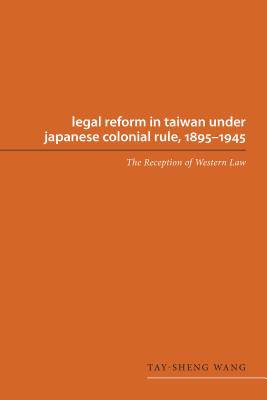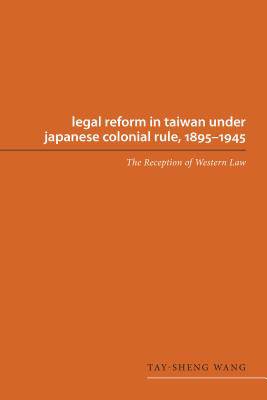
- Retrait gratuit dans votre magasin Club
- 7.000.000 titres dans notre catalogue
- Payer en toute sécurité
- Toujours un magasin près de chez vous
- Retrait gratuit dans votre magasin Club
- 7.000.0000 titres dans notre catalogue
- Payer en toute sécurité
- Toujours un magasin près de chez vous
Legal Reform in Taiwan Under Japanese Colonial Rule, 1895-1945
The Reception of Western Law
Tay-Sheng WangDescription
Taiwan's modern legal system--quite different from those of both traditional China and the People's Republic--has evolved since the advent of Japanese rule in 1895. Japan has gradually adopted Western law during the 19th-century and when it occupied Taiwan--a frontier society composed of Han Chinese settlers--its codes were instituted for the purpose of rapidly assimilating the Taiwanese people into Japanese society.
Tay-sheng Wang's comprehensive study lays a solid foundation for future analyses of Taiwanese law. It documents how Western traditions influenced the formation of Taiwan's modern legal structure through the conduit of Japanese colonial rule and demonstrates the extent to which legal concepts diverged from the Chinese legal tradition and moved toward Western law.
Spécifications
Parties prenantes
- Auteur(s) :
- Editeur:
Contenu
- Nombre de pages :
- 298
- Langue:
- Anglais
- Collection :
Caractéristiques
- EAN:
- 9780295994475
- Date de parution :
- 22-02-15
- Format:
- Livre broché
- Format numérique:
- Trade paperback (VS)
- Dimensions :
- 152 mm x 229 mm
- Poids :
- 439 g

Les avis
Nous publions uniquement les avis qui respectent les conditions requises. Consultez nos conditions pour les avis.






